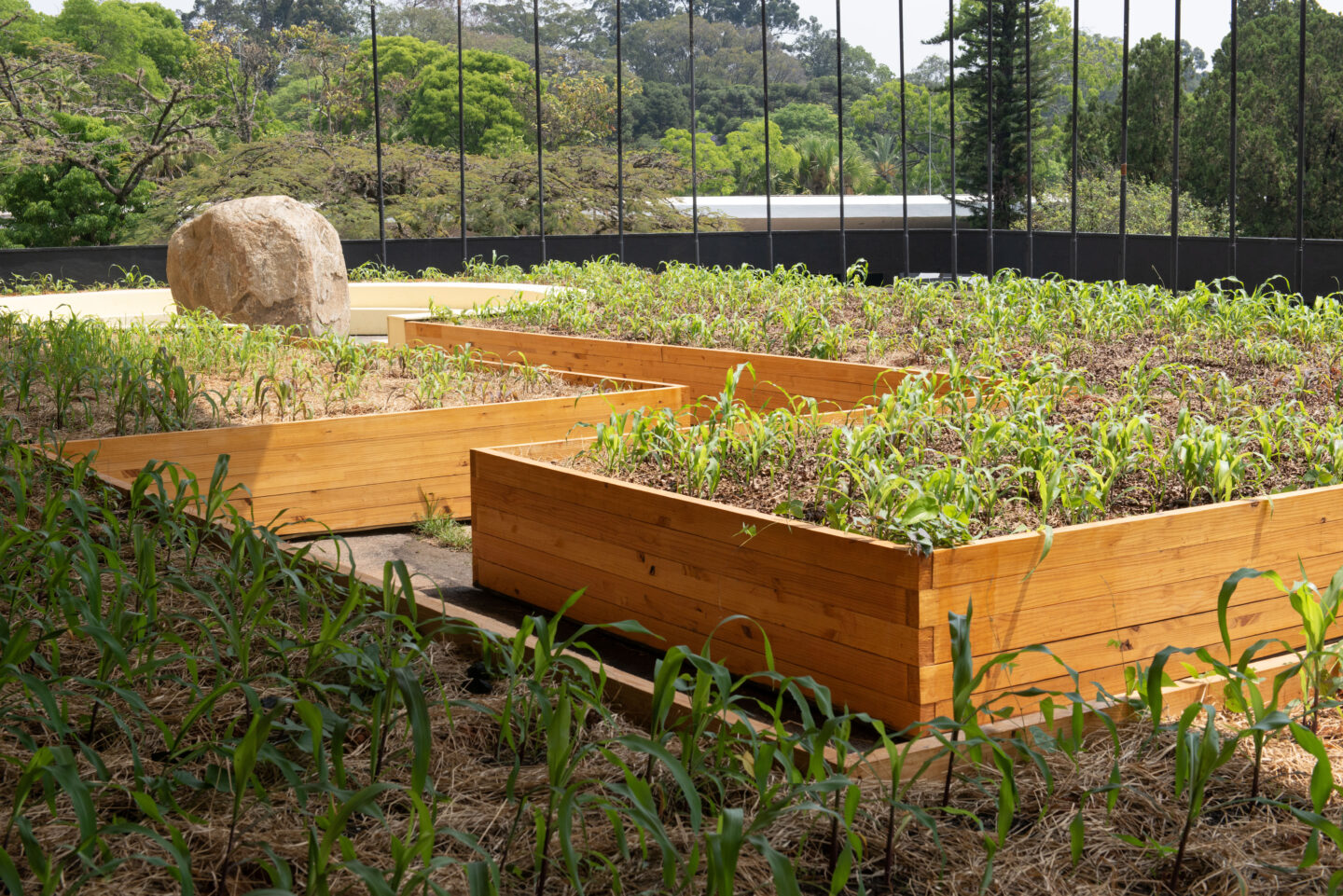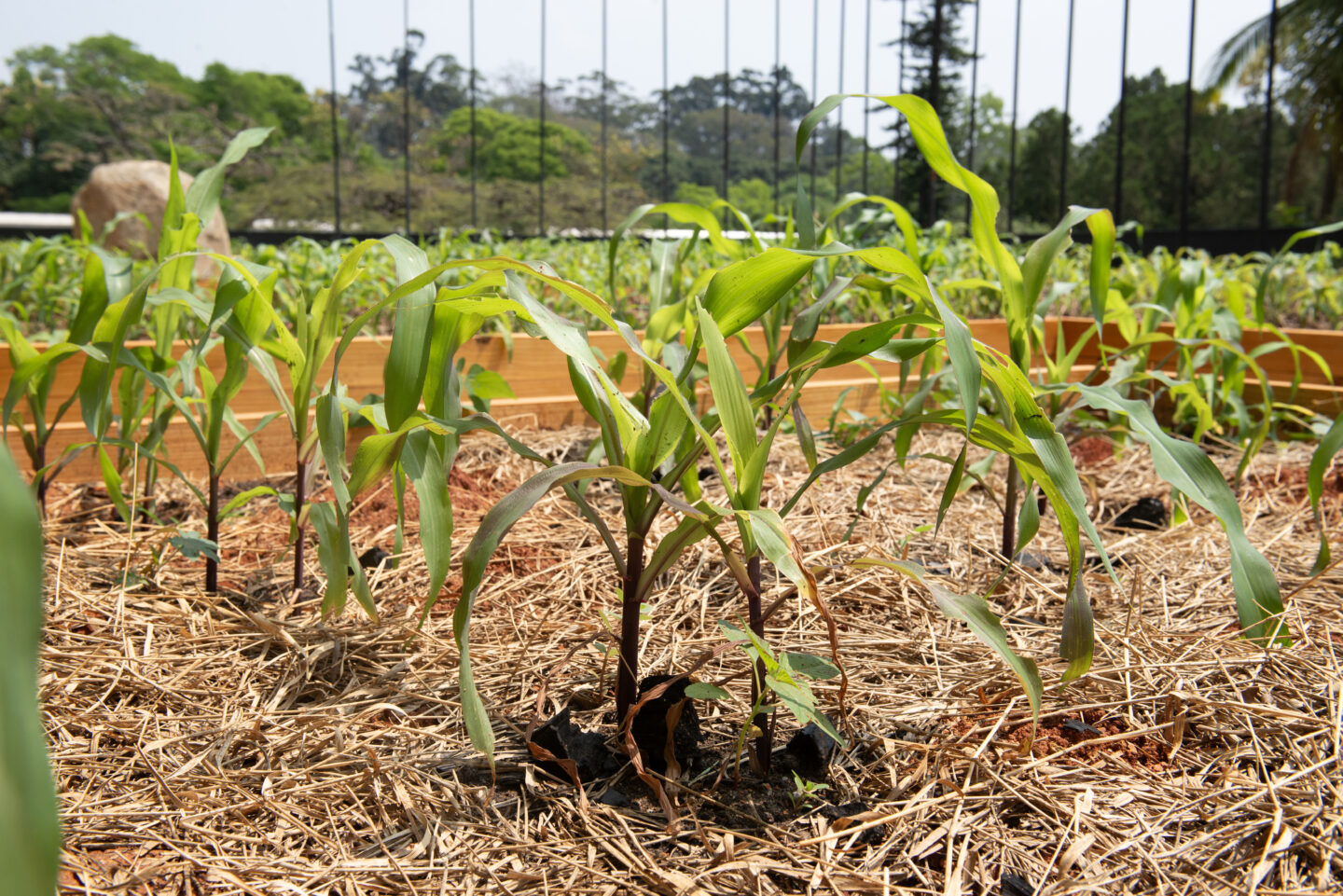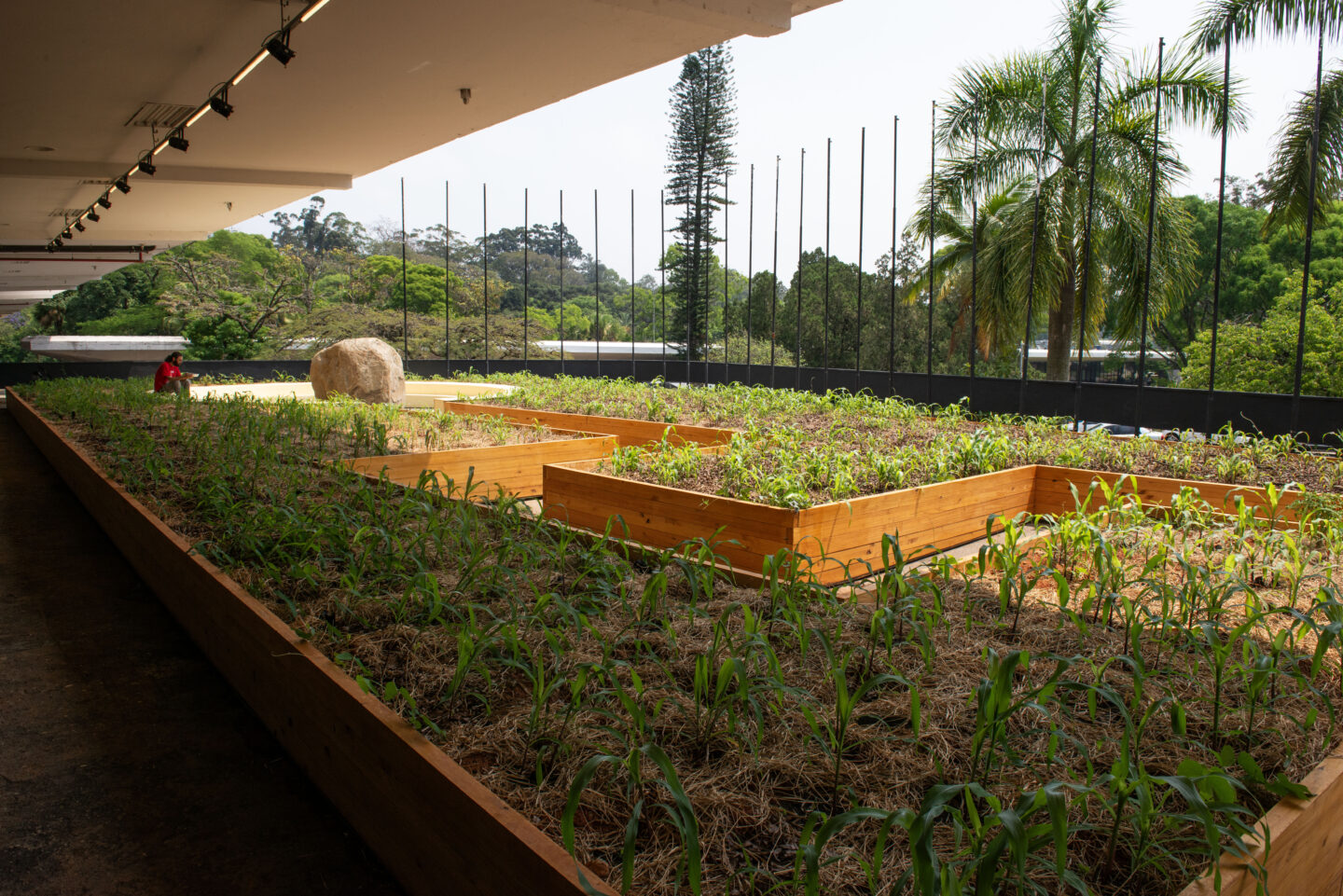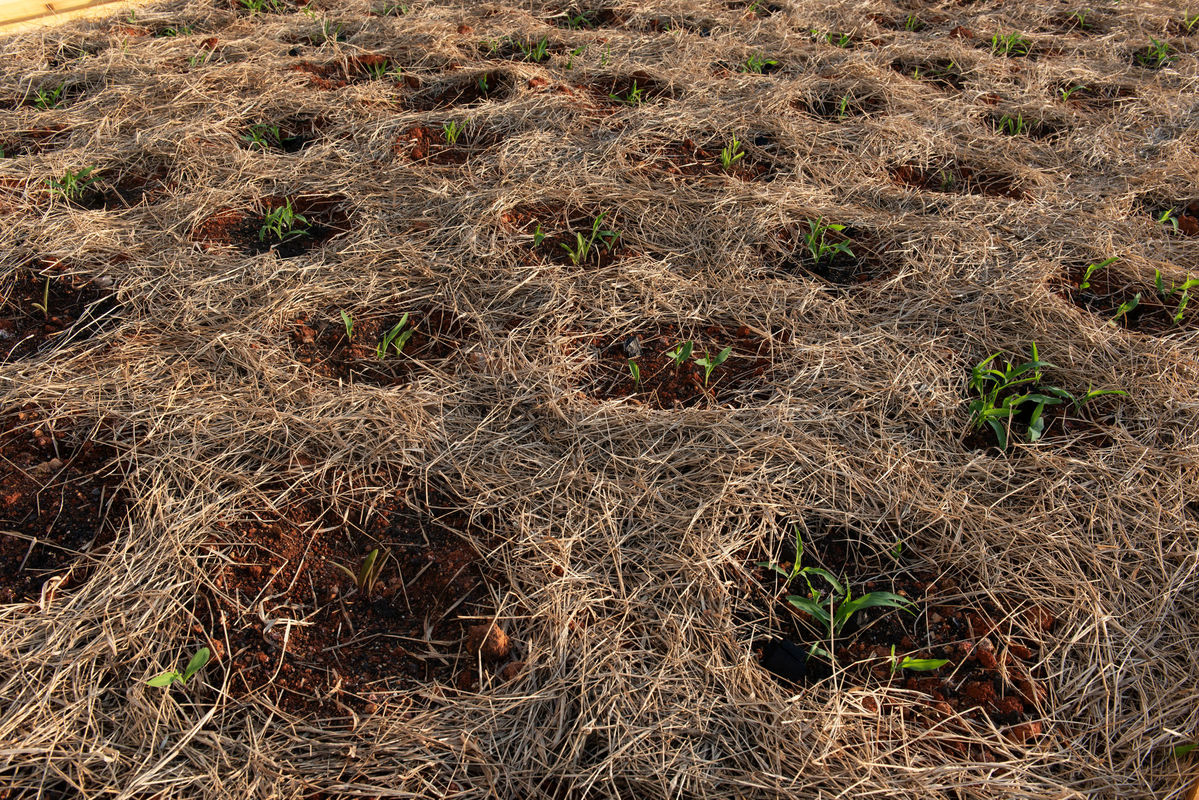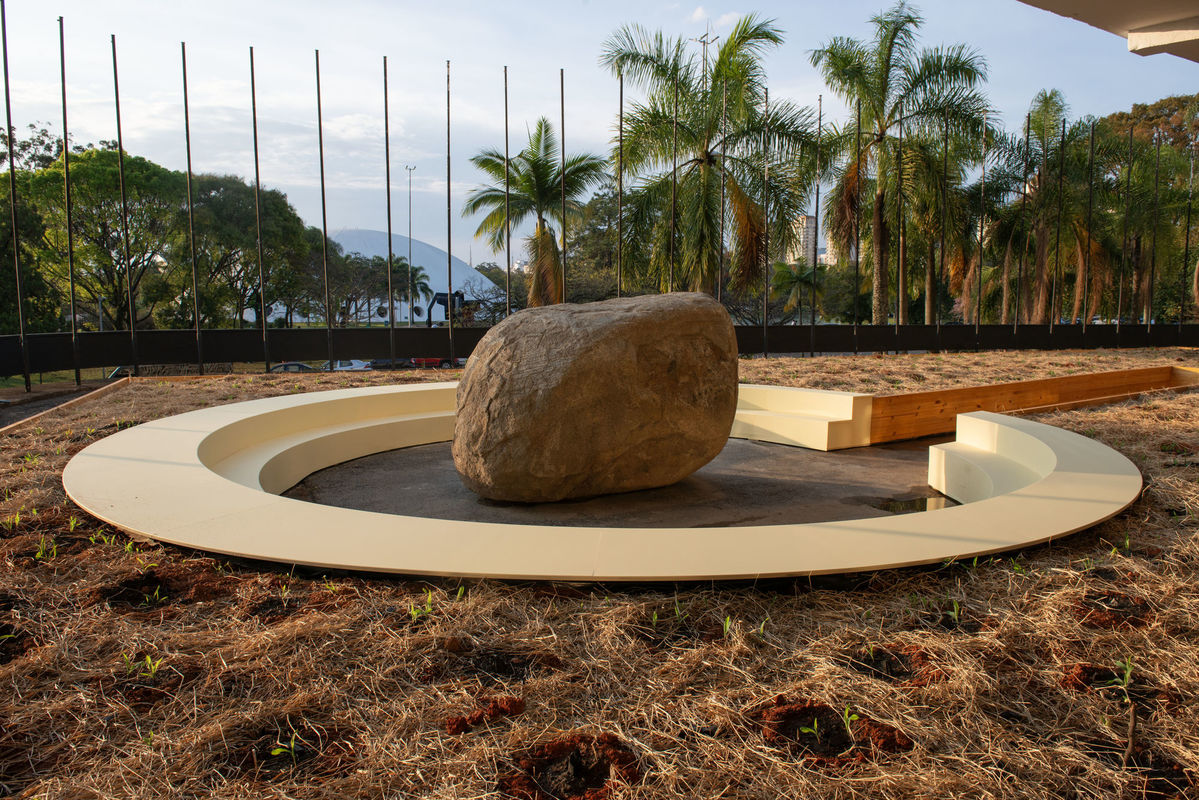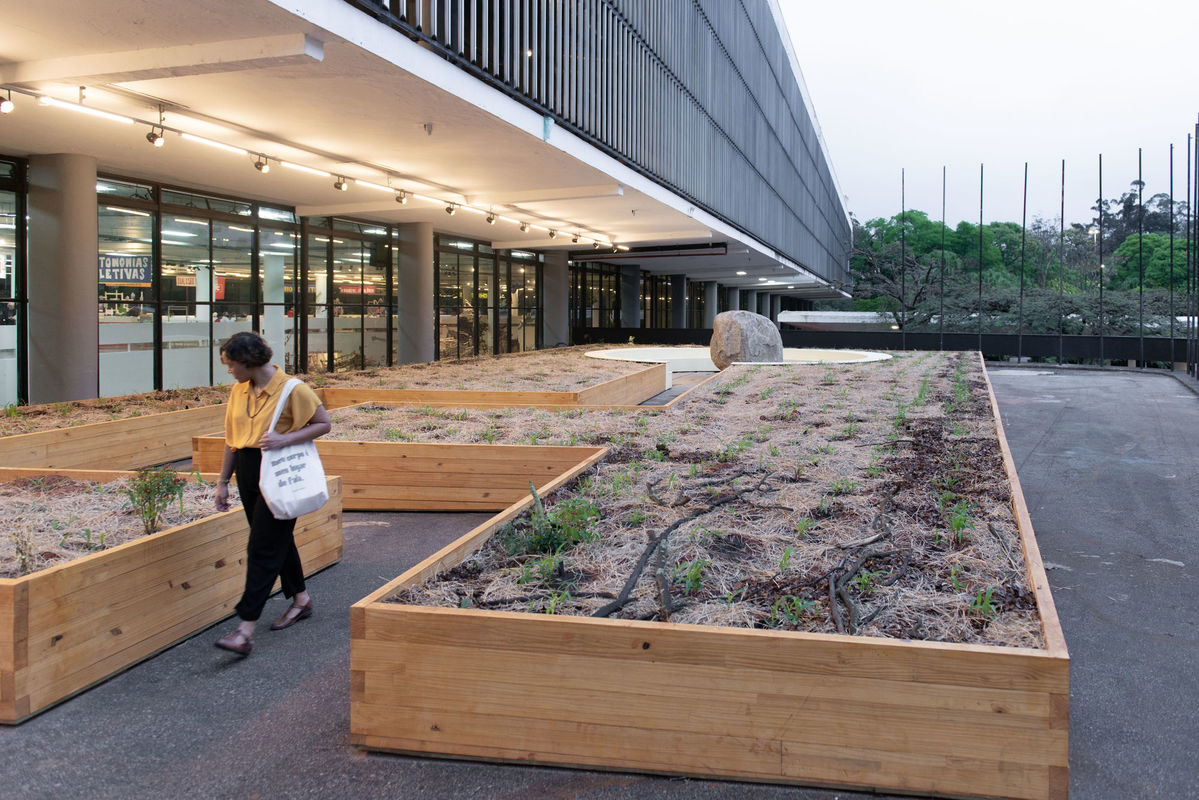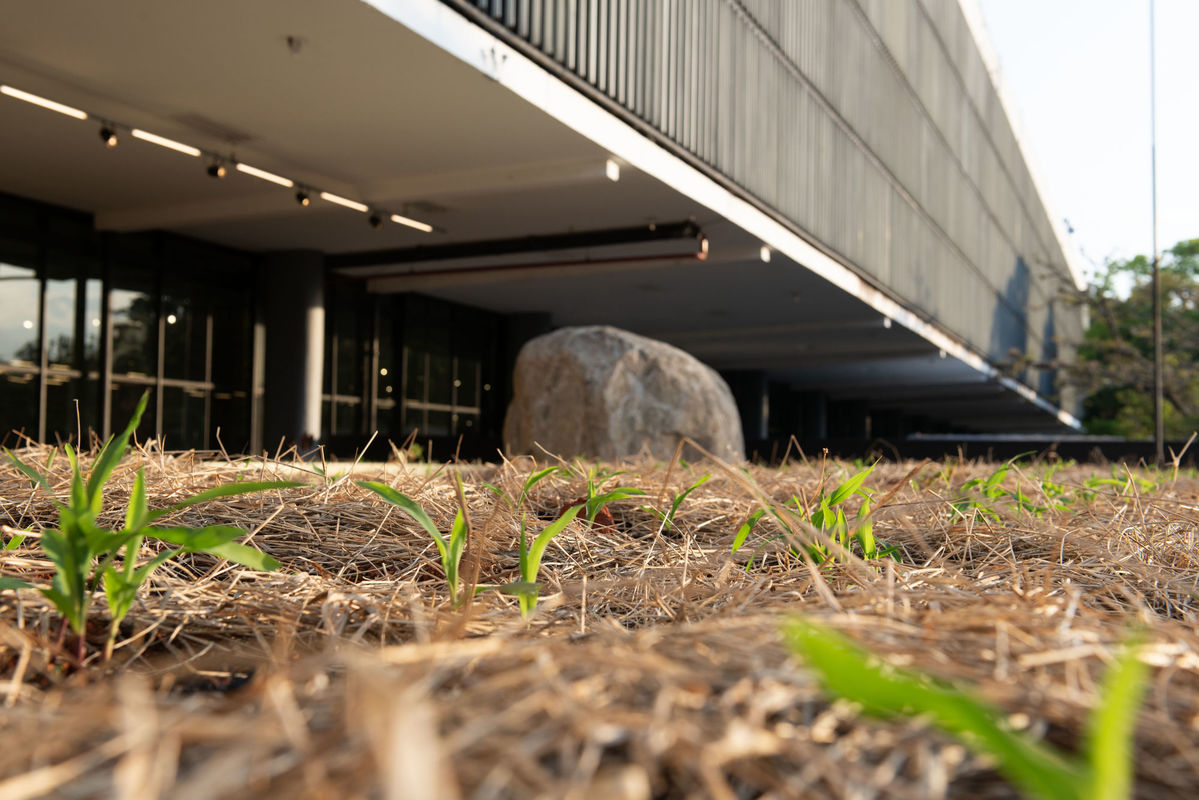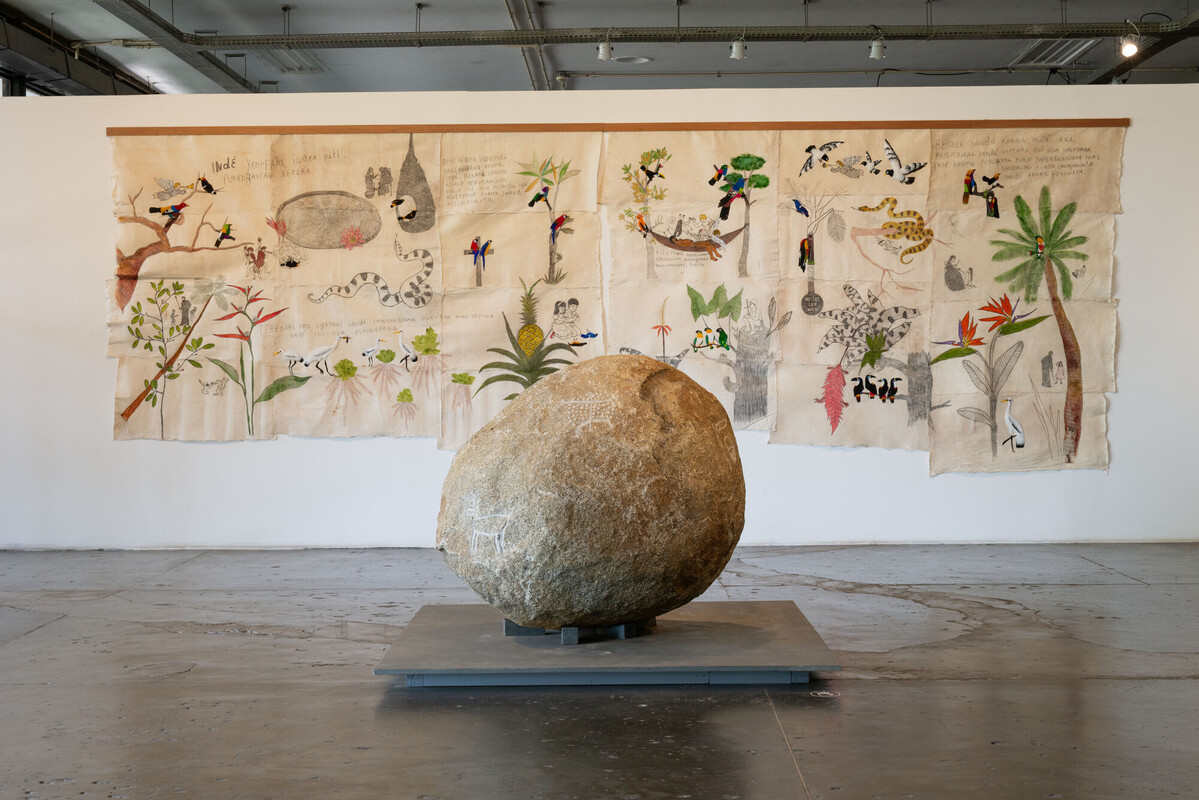
Denilson Baniwa
The linear organization of time as conceived by modern Europe, driven by the notions of progress and non-return, is incompatible with the conceptions of time among Amerindian cultures. Determined by the interaction between the body and nature, and organized through empirical observation of the transformations of the environment, the experience of Indigenous time is generally based on mythical foundations which are reinscribed in daily life through rites. Among these rites is the transmission of knowledge and the sharing of affections, which in the Western world we call education. It is from an understanding of education as a non-linear, procedural, and collective process that Denilson Baniwa has, in recent years, been investigating ways of introducing Indigenous temporalities into non-Indigenous artistic institutions.
One of the most prominent artists of his generation, Denilson Baniwa’s work proposes a reworking of the idea of the archive as a pedagogical tool for reflection and a factory of history. From his early works, which intervene in engravings produced in the context of the colonization of the Americas, to his most recent works, which are installation-based and participatory, Baniwa intrudes upon the archive with the aim of stressing and weakening the accelerated time of conquest and colonization and bringing forth the time of reflection, waiting, and listening. In more recent works, such as Nada que é dourado permanece, hilo, amáka, terra preta de índio [Nothing that is golden remains, hilo, amáka, Indigenous dark earth] (2021), Ygapó – terra firme [Ygapó – Dry land] (2022) and Escola Panapaná [Panapaná School] (2023), the artist commits to stimulating relationship and contact, rescuing the image of cultivating the fields and life in the forest as a metric of time and a metaphor for education.
In Kwema/Amanhecer [Kwema/Dawn], Denilson Baniwa deepens his research on the integration between artwork and community, complexifies the technical procedures that allow the passage from the field of representation to that of experience, and reveals the possibility of harvesting and eating as the realization of the act of sharing and the reworking of memory.
renato menezes
translated from Portuguese by philip somervell
- Vista de obra Kwema/Amanhecer de Denilson Baniwa durante a 35ª Bienal de São Paulo – coreografias do impossível © Levi Fanan / Fundação Bienal de São Paulo
- Detalhe de obra Kwema/Amanhecer de Denilson Baniwa durante a 35ª Bienal de São Paulo – coreografias do impossível © Levi Fanan / Fundação Bienal de São Paulo
- Vista de obra Kwema/Amanhecer de Denilson Baniwa durante a 35ª Bienal de São Paulo – coreografias do impossível © Levi Fanan / Fundação Bienal de São Paulo
- Detalhe de obra Kwema/Amanhecer de Denilson Baniwa durante a 35ª Bienal de São Paulo – coreografias do impossível © Levi Fanan / Fundação Bienal de São Paulo
- Vista de obra Kwema/Amanhecer de Denilson Baniwa durante a 35ª Bienal de São Paulo – coreografias do impossível © Levi Fanan / Fundação Bienal de São Paulo
- Vista de obra Kwema/Amanhecer de Denilson Baniwa durante a 35ª Bienal de São Paulo – coreografias do impossível © Levi Fanan / Fundação Bienal de São Paulo
- Vista de obra Kwema/Amanhecer de Denilson Baniwa durante a 35ª Bienal de São Paulo – coreografias do impossível © Levi Fanan / Fundação Bienal de São Paulo
Denilson Baniwa (Barcelos, AM, Brazil, 1984. Lives in Niterói, RJ, Brazil) is a visual artist, publicist, and advocate for Indigenous rights. Through lectures, workshops, and courses as well as through various media such as magazines, films, and TV series he contributes to the construction of an indigenous imagery. He has exhibited his work at institutions such as the Galeria de Arte da Universidade Federal Fluminense (Niterói, RJ, Brazil), 4th Festival Corpus Urbis (Oiapoque, AP, Brazil), Centro Cultural Banco Brasil, Pinacoteca de São Paulo, MASP, Centro Cultural São Paulo, Museu Afro Brasil (São Paulo, SP, Brazil), Centro de Artes Hélio Oiticica, Museu de Arte do Rio (Rio de Janeiro, RJ, Brazil), and the Sydney Biennial (Australia). He received the Prêmio Pipa in 2019 and curated exhibitions at the Museu de Arte Moderna do Rio de Janeiro (Brazil) and the Getty Museum (Los Angeles, USA).

 Português
Português